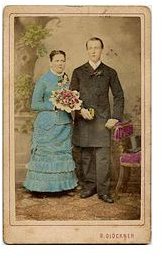Reverse Mortgage Information: Find Out if a Reverse Mortgage is Right For You with This Basic Information
What is a Reverse Mortgage?
Reverse mortgages appear to be a good thing for seniors who have equity in their homes, though may of them still seek to find more information on reverse mortgages. This type of mortgage is different that a conventional loan where you pay a monthly payment that includes principal and interest and then once paid in full, the lien is released. We asked Taos, New Mexico Realtor John Cancro of Taos Properties to tell us what consumers need to know and provide information about reverse mortgages.
“A reverse mortgage is a low interest loan for seniors that are at least 62 years in age; or the youngest person living in the home must be 62 years of age,” explained Cancro. “The reverse mortgage (loan) is computed by a percentage of the home’s equity and used as collateral. People who decide a reverse mortgage is right for them can receive the loan funds in a lump sum, equal monthly payments for as long as they reside in the home or equal monthly payments for a certain number of years,” said Cancro. “It can also be used as a line of credit where people can take money out any time until the loan funds are exhausted and loan proceeds can be used for almost anything,” Cancro told me.
So, what’s the catch? I found out there were few, other than the age limit. Homes had to be built within the last thirty years and the homeowner must own the home and the land where it sits. The home must be on a permanent foundation and it has to pass an FHA inspection. Seniors who live in manufactured homes can qualify if the home is on a permanent slab or foundation. A final restriction is you must have paid at least half of your mortgage balance to qualify for a reverse mortgage.
Other Important Tips on Reverse Mortgages

Some information about reverse mortgages:
The loan doesn’t have to be paid back until the last surviving homeowner moves out or dies. At time of move out or death, the homeowner’s estate has twelve months to pay back the remaining balance of the reverse mortgage. A person’s estate can sell the home to pay off the balance and all equity that may increase during the term of the reverse mortgage is inherited by the estate. One good thing is that a person’s estate is not liable if the homes ends up selling for less than the reverse mortgage balance.
If your home is paid in full, you can still obtain a reverse mortgage based on the home’s equity and loan repayment remains the same. As long as you’ve paid at least half the balance of your conventional mortgage, your income or credit score don’t come into play. Once you enter into a reverse mortgage instead of the monthly payments you used to make, you receive monthly payments from the loan company.
The FHA determines how much your reverse mortgage will be worth. They utilize a formula that takes into account your age, current interest rate on your conventional mortgage, and what the appraised value of your home is. If you are age 70, your interest rate will be lower than a homeowner who is 62 years of age. The amount of your reverse mortgage is higher based on the worth of your home once an appraisal is done. No loan repayment is due as long as you live in the home. A homeowner who must leave for senior care in a nursing facility is considered to have left the home and repayment is due within the next twelve months.
Seniors who choose a reverse mortgage must still pay for household expenses such as utilities, real estate taxes, and homeowners insurance. In addition, you never owe more than what your home is worth and your estate, once you are deceased, has a few options on repayment of the reverse mortgage. Your estate can attempt to turn the reverse mortgage into a conventional mortgage and keep the home; however, the person or persons applying for a conventional mortgage must be credit worthy. Finally, if the equity in your home at the time of your death is more than the amount you owe, your estate keeps that amount if the home is sold.
For more information about reverse mortgages, contact your Realtor.
